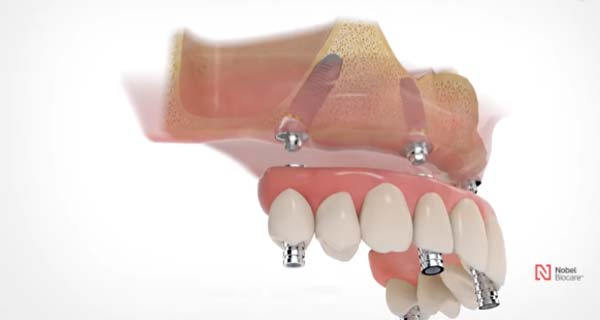Dental Implant Financing Options

How To Pay For Dental Implants*
Deciding on getting dental implants can be an exciting, yet difficult time. Because of the high price of dental implants, many people miss out on getting a brand-new smile, the ability to eat the foods they love, and confidence in everyday situations because they feel there’s no way they can pay for implants. We’re going to put that to rest today with our list of dental implant financing options!
What We’ll Cover:
- Dental Loans
- Insurance Coverage
- All-on-6 vs All-on-4 Pricing/Financing
- Health Savings Account
- Borrowing From Retirement Plans
- Personal Loans/Credit Unions
- Credit Cards
- Partial Financing
Dental Loans
As far as dental implant financing options, dental loans are great. These loans are a great way to cover a portion, or all, of a dental implant procedure. Dental loans can also cover related procedures such as bone grafting or sinus lifts that may be necessary to prepare the jawbone for implant placement. Make sure to check with the lender or financing company to understand the terms and conditions of the loan.
Check out this list of best dental financing loans or contact our team to see the ones we recommend!
Insurance Coverage
Insurance coverage for dental implants depends on the insurance provider, your plan, and the reason for needing the implants. In general, most dental insurance plans do not fully cover the cost of dental implants because it is considered a cosmetic or elective procedure, so make sure to have a way to pay for the remaining balance if there is one. However, your plan may cover part of the procedure if it’s considered a medical necessity, like cases of injury or disease that result in tooth loss.
Make sure to contact your provider for more information about your plan’s coverage!
All-on-6 vs All-on-4 Pricing & Financing
At some offices, you may have a choice on your procedure, but we do things differently. Our all-on-6 and all-on-4 procedures and pricing are customized specifically to our patients needs by our expert team of doctors. With a free consultation, you can have a custom price given to you based on your situation by Dr. Patel and have confidence that you will get exactly what you need.

Health Savings Account
To use a HSA to pay for dental implants, you must have an HSA-qualified high-deductible health plan (HDHP). If you meet this requirement, you can use your funds to pay for qualified expenses, including dental implants. To do this, you can withdraw money from your HSA and use it to cover the cost of the implants. Using an HSA to pay for dental implants can offer tax benefits, as “contributions to an HSA are tax-deductible, and withdrawals for qualified medical expenses are tax-free“. However, it’s a good idea to consult with a tax professional or financial advisor to know the specific tax implications for your situation before the funds are used as a dental implant financing options.
Borrowing From Retirement Plans
You may be able to take money out of your retirement plan to pay for dental implants, but it’s important to understand the implications and potential penalties associated with early withdrawals.
We aren’t financial professionals, so make sure to contact someone who can show you the potential issues that can come with withdrawing money from these types of accounts.
Personal Loans/Credit Unions
Personal loans and credit union loans are often used to cover medical expenses, including dental procedures. These types of loans can provide you with the funds you need to pay for dental implants upfront, and then you can repay the loan over time in fixed monthly installments.
We are partnered with Proceed Financing and CareCredit for third party financing needs. Patients are able to pre-apply for both options without taking a hard hit on their credit.
Learn more about Proceed Finance (Loan)
Credit Cards
Many dental offices, like Lorton Springfield Mount Vernon Dental Implant & Oral Surgery, accept credit cards as a form of payment for dental procedures, including implants. Using a credit card to pay for dental implants can be a convenient way to cover the cost of treatment, especially if you have a credit card with a low-interest rate or rewards program.
Our office accepts Visa, MasterCard, Discover, Amex, and CareCredit credit cards.
CareCredit is a credit card that can be specifically used for dental and medical needs, such as dental implants.
Learn more about CareCredit (Credit Card)
Partial Financing
All of the methods above are great for paying for dental implants! Don’t forget that it’s ok to mix and match payment options to fit your financial plans and ability. If it makes sense to pay with insurance then come out of pocket for the rest that works! Or if you want to pay in part with a personal loan and a credit card that works too! We want you to get your confidence back and will work with you to make that happen!
* Please note that the information provided here is for general informational purposes only and should not be construed as financial advice. While efforts have been made to ensure the accuracy of the information presented, we cannot guarantee that it is free from errors or omissions. We do not accept any liability for any loss or damage incurred as a result of reliance on the information provided.





